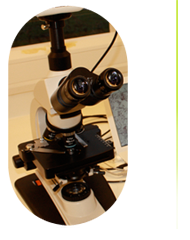
Biomarker discoveryOf course, such a separation of approach is rarely this clear. Any non-hypothesis-driven approach inevitably involves the selection of an ‘omics method (e.g. metabolomics, proteomics or genomics) and selection and / or preparation of samples. In making these selections we uses our experience and your background knowledge about the problem being investigated to choose one approach over another, making the approach somewhat hypothesis-driven. The inverse is often true, with hypothesis-driven approaches rarely involving the investigation of a single analyte, but often a class of analytes. For example, one may start from the belief that an inflammatory cytokine may provide a useful biomarker for a given purpose – in which case a hypothesis-driven approach may involve the multiplex analysis of tens of inflammatory cytokines in the first instance. |
At Total Scientific we have experience in both of these approaches. In the case of hypothesis-driven work, we are experienced in assay development and assay validation, in particular for protein analytes. We have a Luminex multiplex analyser in house, and are experienced in running multiplex protein assays, for example for cytokine analysis.
We are also highly experienced in metabolomic analysis of samples for biomarker analysis. Rather than sticking with a particular technique, we work with carefully selected partners to outsource the chemical analysis stage (whether that be for example GC-MS or NMR analysis). By keeping our capital expenditure low, you get the best prices and we can negotiate access to the best technology, without feeling constrained by having to use our own in-house capabilities.
One critical phase in biomarker discovery is the design of the experiment. We can work with you to try and identify biomarkers on existing sample sets, on samples purchased for the purpose or on bespoke cohorts not yet collected. However, better results are almost always obtained by us working with you prior to the collection or purchase of samples for biomarker analysis. By the time you have collected your samples for biomarker analysis it may be too late to optimise your protocol to reduce bias from external sources and maximise your potential to identify that new biomarker. It is also important to consider exactly what the aim of your study is. Too many biomarker programmes suffer from gradual degradation of performance, discussed here in our biomarker blog.
We are experienced in the design and performance of biomarker clinical studies and can work with you to collect new patient samples for a biomarker study, either by providing the study in its entirety, or by working with your existing provider to insert a biomarker bolt-on into an existing study. Click here for more information on our clinical studies services.
